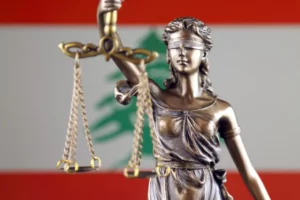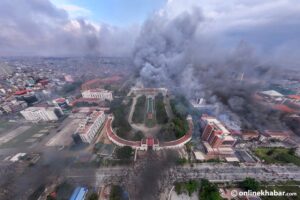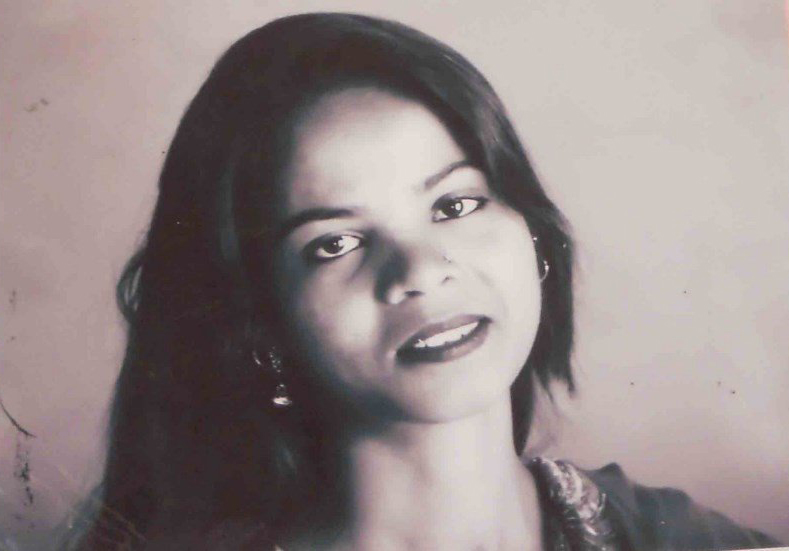
Oct 12, 2016 | News
In a briefing paper released today, the ICJ provides answers to key questions regarding the blasphemy case against Asia Noreen (Asia bibi), a 45-year old Christian woman convicted and sentenced to death for “defaming the Prophet Muhammad” in 2010.
Tomorrow, on Thursday 13 October 2016, the Supreme Court of Pakistan is scheduled to hear Asia bibi’s appeal challenging her conviction and death sentence for blasphemy.
The Lahore High Court had upheld her conviction and sentence in October 2014.
“Asia bibi has been on death row for six years under a bad law that has been improperly applied,” said Sam Zarifi, ICJ’s Asia Director.
“The Supreme Court has previously held that people accused of blasphemy in Pakistan ‘suffer beyond proportion or repair’– Asia bibi’s case is an illustration of that injustice and suffering,” he added.
If the Supreme Court upholds her conviction, Asia bibi will be at the risk of execution, with only limited options of filing for a review of the judgment and making a mercy petition to the President of Pakistan.
The Supreme Court has so far not upheld any convictions for blasphemy under section 295-C of the Penal Code (defamation of the Prophet Muhammad).
The briefing paper explains the allegations against Asia bibi and assesses the violations of Pakistani and international fair trial standards during her blasphemy trial and high court appeal.
“This is the first blasphemy appeal being heard by the Supreme Court since 2002,” Zarifi said.
“All eyes are on the Court to see if it will provide justice to Asia bibi, and whether it will try to clean up some of the manifest injustices of the blasphemy law and how it’s being applied today,” he addedd.
The ICJ opposes laws that criminalize the exercise of freedom of expression as protected by international law and standards, including in relation to religion, and opposes capital punishment in all circumstances.
The death penalty constitutes a violation of the right to life and the right not to be subjected to cruel, inhuman or degrading punishment.
Contact:
Sam Zarifi, ICJ Asia Pacific Regional Director (Bangkok), t: +66 807819002; e: sam.zarifi(a)icj.org
Reema Omer, ICJ International Legal Adviser for Pakistan (London), t: +44 7889565691; e: reema.omer(a)icj.org
Additional Information:
In November last year, the ICJ published a report documenting in detail systematic and widespread violations of the right to a fair trial in proceedings related to blasphemy offences in Pakistan, particularly in trial courts. The report confirmed concerns raised by the Supreme Court of Pakistan that individuals accused of blasphemy ‘suffer beyond proportion or repair’ in the absence of adequate safeguards.
The ICJ also made a number of recommendations to the Pakistani executive, legislative and judicial branches to address violations caused by application of the blasphemy laws, whether due to the legislative provisions themselves or at the investigative, prosecutorial, procedural, administrative and judicial levels highlighted in the report, including to ensure that those accused of blasphemy have a fair chance at defending themselves.
pakistan-asia-bibi-qa-advocacy-2016-eng (full Q & A, in PDF)
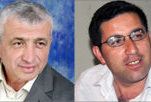
Oct 7, 2016 | News
The ICJ today expressed its serious concerns over the convictions on charges of incitement and extremism of Tajikistan lawyers Buzurgmehr Yorov and Nuriddin Makhkamov, and their sentencing to 23 and 21 years in prison respectively.
“These convictions, which continue a recent pattern of persecution of lawyers in the country, will contribute to the already poor climate for the independence of the legal profession in Tajikistan,” said Róisín Pillay, Director of the ICJ’s Europe and CIS Programme.
“The ICJ calls on the Government of Tajikistan to ensure that the two lawyers are able to appeal their convictions through a fair process before an independent court,” she added. “It should ensure that criminal prosecution is not used by the executive as a means to limit lawyers in the exercise of their professional duty, and that lawyers do not suffer any reprisals due to their identification with their clients’ causes.”
On 6 October, the two lawyers were sentenced by the Dushanbe City Court on a number of charges, which included incitement to feud, calls for a violent change of the constitutional order and extremist activity.
They were also banned from working as lawyers for five years after serving their sentences.
Buzurgmehr Yorov, head of the Sipar Collegium of Lawyers, was arrested on 28 September 2015. Nuriddin Makhkamov, a lawyer of the same Collegium, was taken into police custody on 22 October 2015.
Both lawyers represented members of the Islamic Renaissance Party of Tajikistan (IRPT) at the time of their arrests.
At the trial, which was closed to the public, with only relatives allowed to attend, the lawyers denied their guilt and argued that the case was politically motivated and related to their defence of IPRT members.
Buzurgmehr Yorov was reported to have testified during the trial that he took up the case not because of a sympathy for the IRPT but because of his professional duty as a lawyer.
These convictions raise significant concerns under international human rights law and international standards on the role of lawyers.
It is a fundamental principle, necessary for the right to fair trial and recognized in international standards on the role of lawyers, that lawyers should never be identified with their clients or their clients’ causes as a result of discharging their professional functions.
The UN Basic Principles on the Role of Lawyers further require governments to ensure that lawyers “are able to preform all of their professional functions without intimidation, hindrance, harassment or improper interference” (Principle 16).
The case also gives rise to concerns regarding respect for the right to a fair trial protected by Article 14 of the International Covenant of Civil and Political Rights, to which Tajikistan is a party.
“These attacks continue a wave of arrests and charges against lawyers in Tajikistan,” said Pillay.
“They create a chilling effect on the proper exercise of professional duties by other members of the legal profession, endangering the right to a fair trial and undermining the justice system,” she added. “The ICJ therefore calls on the Government to take urgent measures to prevent further such attacks on lawyers.”
Contact:
Róisín Pillay, Director, ICJ Europe and CIS Programme, t: +32 2 734 84 46; e: roisin.pillay(a)icj.org
Temur Shakirov, Legal Adviser, ICJ Europe and CIS Programme, t: +41 22 979 38 32; e: temur.shakirov(a)icj.org
Additional Information:
Buzurgmehr Yorov was arrested on 28 September 2015 and initially changed with fraud. Other charges were added later during his pre-trial detention. He was sentenced to 23 years imprisonment on charges of incitement to national, racial, local or religious feud (Article 189 of the Criminal Code (CC)), fraud (Article 247 of the CC), public calls to a violent change of the constitutional order (Article 307 of the CC), public calls to conduct extremist activity (Article 3071 of the CC), forgery, production or sale of forged documents, state awards, stamps, forms (Article 340 of the CC).
Nuriddin Makhkamov was arrested on 22 October 2015. He was initially charged with fraud. Further charges were added during his pre-trial detention. He was convicted on charges including incitement to national, racial, local or religious feud (Article 189 of the CC), fraud (Article 247 of the CC), public calls to a violent change of the constitutional order (Article 307 of the CC), public calls to conduct extremist activity (Article 3071 of the CC).
The IRPT was found to be a terrorist organization by the Supreme Court of Tajikistan in 2015 and banned. Its leaders received long prison sentences in closed trials on charges of terrorism, extremism and attempts to overthrow the constitutional order.
A number of other prominent lawyers have been arrested and convicted in Tajikistan since 2014. Some have been released, others remain in detention, including Shukhrat Kudratov, the lawyer of the former Minister of Energy Zaid Saidov, convicted on fraud and bribery charges in 2015.
tajikistan-yorov-makhkamov-news-web-story-2016-rus (full text in Russian, PDF)
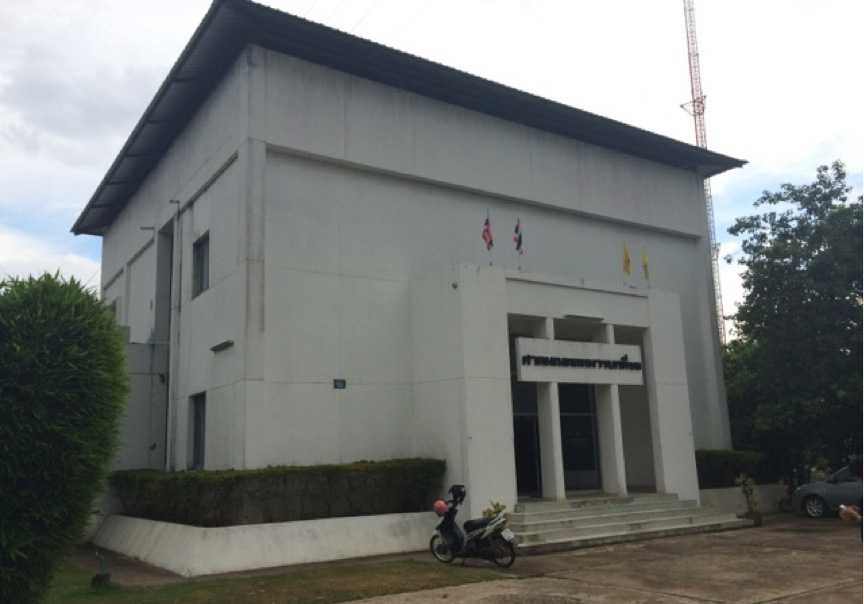
Sep 12, 2016 | News
The Thai junta’s Order today phasing out the prosecution of civilians in military courts is a welcome step but the military government must do much more to comply with its international human rights obligations, said the ICJ today.
Head of the National Council for Peace and Order (NCPO) Order 55/2016, dated 12 September 2016 and issued under Article 44 of the Interim Constitution, phases out the heavily criticized practice of prosecuting civilians before military courts for four categories of offences, including offences against internal security; violation of NCPO orders; possession and use of war weapons; and the highly punitive offence of lese majeste.
The Order only applies to offences committed from the date the Order comes into force – today – and not to past or pending cases.
Since the May 2014 coup, at least 1,811 civilians have been tried in Military Courts, based on information the Judge Advocate General’s Department (JAG) provided to Thai Lawyers For Human Rights (TLHR) in July 2016 and covering the period 22 May 2014 to 31 May 2016.
“Almost 2,000 civilians have faced an unjust process and unfair trials before military tribunals, many of whom were prosecuted simply for exercising their rights to freedom of expression and assembly,” said Sam Zarifi, Asia Director at the ICJ. “All pending cases should be transferred to civilian courts and the convictions of all civilians prosecuted in military courts since the 2014 coup should be set aside.”
Head of the NCPO Order 55/2016 also explicitly affirms that the deeply problematic Head of the NCPO Orders 3/2015 (which replaced nationwide Martial Law on 1 April 2015) and 13/2016 shall remain in force.
These Orders prohibit the gathering of more than five people for political purposes; allow for the detention of civilians in military facilities for up to seven days without charge; and provide appointed “Prevention and Suppression Officers” and their assistants, drawn from the commissioned ranks of the Armed Forces, including the paramilitary Ranger Volunteers, with wide-ranging powers to prevent and suppress 27 categories of crimes including against public peace, liberty and reputation, immigration, human trafficking, narcotics, and weapons. The ICJ considers that these orders are not in accordance with Thailand’s international human rights obligations
“Its now crucial for the military to return responsibility for law enforcement to civilian authorities, and ensure they are properly trained and competent,” Zarifi said. “We hope today’s Order is a step toward returning Thailand to the rule of law and respect for human rights.”
Background
Clause 3 of Head of the NCPO Order 55/2016 notes “As appropriate, the Prime Minister may propose to the National Council for Peace and Order to amend this Order.”
Previously, NCPO Announcements 37/2014, 38/2014 and 50/2014 extended the jurisdiction of Thailand’s military courts to four categories of offences, including offences against internal security, violation of NCPO orders, possession and use of war weapons, and lese majeste.
The prosecution of civilians in military courts is inconsistent with Article 14 of the International Covenant on Civil and Political Rights (ICCPR) – to which Thailand is a State Party – which affirms that everyone has the right to a “fair and public hearing by a competent, independent and impartial tribunal established by law.”
The Principles Governing the Administration of Justice through Military Tribunals sets out principles that apply to state use of military tribunals. Principle 5 states “Military courts should, in principle, have no jurisdiction to try civilians. In all circumstances, the State shall ensure that civilians accused of a criminal offence of any nature are tried by civilian courts.”
Contact:
Sam Zarifi, ICJ Asia Pacific Regional Director (Bangkok), t: +66 807819002; e: sam.zarifi(a)icj.org
Kingsley Abbott, ICJ Senior International Legal Adviser, t: +66 9 4470 1345, e: kingsley.abbott(a)icj.org
Download:
thailand-unofficial-translation-head-of-ncpo-order-55_2559-advocacy-2016-eng (full text of Order in English, PDF)
thailand-ncpo-order-55_2559-news-2016-tha (full text of news in Thai, PDF)
Read also:
Thailand: transfer all civilians to civilian courts
Thailand: end prosecution of civilians in military tribunals
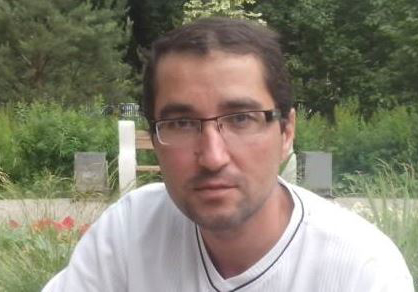
Sep 6, 2016 | News
The ICJ has deplored the arrest and detention on questionable charges of Jamshed Yorov (photo), a lawyer practicing in Tajikistan.
Following his arrest on 22 August 2016, the lawyer was remanded in custody in a pre-trial facility in Dushanbe for two months.
He was charged with “disclosure of State secrets” under part 1 of article 311 of the Criminal Code of Tajikistan.
Jamshed Yorov was detained on Monday, 22 August 2016. On the next day, he called his family and informed them that he was in police custody and being questioned in connection with the alleged leaked publication of the text of a classified court judgment on the internet.
The judgment concerned the case of thirteen leaders and three members of the Islamic Renaissance Party of Tajikistan (IRPT), who had been sentenced on 2 June 2016 to various long-term custodial terms, including life-imprisonment.
Jamshed Yorov represented Mahmadali Hait, one of the leaders of the IRPT, who was sentenced to life imprisonment.
The ICJ is concerned that the decision to arrest Jamshed Yorov may have been in response to the legitimate exercise of his professional functions in representation of Mahmadali Hait.
Any such reprisal would be contrary to a fundamental tenet of the rule of law, reflected in the UN Basic Principles on the Role of Lawyers, that lawyers shall not be identified with their clients or their clients’ causes as a result of discharging their functions.
Additionally they must be able to perform all their profession functions without intimidation, hindrance, harassment or improper interference.
The principles affirm that lawyers must not suffer, or be threatened with, prosecution or administrative, economic or other sanctions for any action taken in accordance with recognised professional duties, standards or ethics.
The ICJ calls on the Tajikistan authorities to comply with all international human rights obligations of Tajikistan, including the right to a fair trial, in the case of Jamshed Yorov.
In accordance with the right to liberty as enshrined in Article 9 of the International Covenant on Civil and Political Rights (ICCPR), pre-trial detention should be ordered in exceptional cases only as a last resort, and in any event there needs to be the possibility to seek bail.
The proceedings should take full account of Jamshed Yorov’s professional duties as a defense lawyer, and should ensure that he does not suffer any criminal or administrative sanction as a result of the discharge of these duties.
The ICJ is further concerned that Jamshed Yorov’s arrest is allegedly linked to disclosure of a ‘secret’ judgment.
Article 14(1) of ICCPR, which guarantees the right to a fair trial, provides that all court judgments must be made public except where the interest of juvenile persons otherwise requires, or where the proceedings concern matrimonial disputes or the guardianship of children.
More generally, under international standards everyone has the right to seek, receive, use, and impart information held by or on behalf of public authorities, or to which public authorities are entitled by law to have access.
While there are narrow exceptions on national security grounds, these are subject to strict limits and safeguards which do not appear to have been met.
Background information
This arrest follows a pattern of arrests of lawyers in 2014-2016, which raises serious concerns about the protection of the right to a fair trial and compliance with international standards on the role of lawyers in Tajikistan.
These arrests, including the arrest of Jamshed Yorov, may have a significant “chilling” effect on the willingness of defense lawyers to take on cases of clients that may be considered sensitive, especially cases that involve accusations of breach of national security and are heard in closed sessions.
Jamshed Yorov is the brother of Buzurgmehr Yorov, who was arrested in November 2015 and who led, before his arrest, the defence for seven leaders of the IRPT Political Council.
Burzurgmehr Yorov remains in remand prison, together with another lawyer, Nuriddin Makhamov, who also represented the IRPR and has been in remand prison since November 2015. Their trial is ongoing.
The ICJ and other international NGOs earlier expressed their concern that this case may also be connected with the performance of laweyers’ professional functions.
The ICJ also expressed its concern at the conviction of lawyer Shukhrat Kurdratov on 13 January 2015 on charges of fraud and bribery for which he was sentenced to nine years in prison. Despite recent reports of a possible amnesty, his conviction will remain in force.
tajikistan-lawyer-yorov-case-news-web-stories-2016-rus (full text in Russian, PDF)
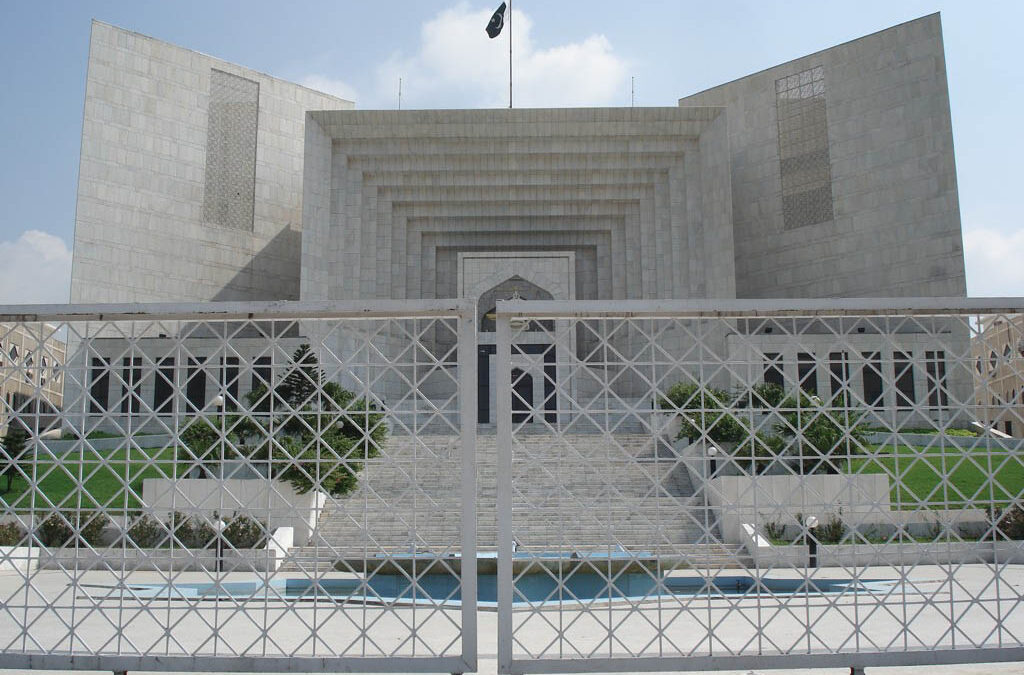
Aug 29, 2016 | News
Pakistan’s Supreme Court’s rejection of petitions by families of 16 people sentenced to death who complained of unfair trials in the country’s military courts seriously set back respect for human rights and the rule of law, the ICJ said today.
“The Supreme Court failed to use an important opportunity to show that human rights protect all people, including those who are accused of terrorist acts or other heinous crimes,” said Sam Zarifi, ICJ’s Asia Director. “Pakistan’s very serious problem with terrorism can only be addressed with more respect for human rights and the rule of law, not less, and certainly not through deeply flawed military tribunals that provide neither justice nor truth.”
Families of sixteen civilians sentenced to death by military courts in secret proceedings challenged their convictions and sentences in the Supreme Court on fair trial grounds. In its 182-page judgment, a five-member bench Supreme Court headed by Chief Justice Anwar Zaheer Jamali held the petitioners had failed to prove the military violated their constitutional right to a fair trial. At convicts are now at imminent risk of execution.
The ICJ is calling on the government of Pakistan to desist from executing these or other convicts, and to reinstate a moratorium on the death penalty it held from 2008 to 2014.
“Trial of civilian suspects in military courts is anathema to human rights and international standards are clear that military courts should only have jurisdiction over military officers for military offences,” said Zarifi. “Pakistan’s military tribunals in particular offer nothing like a fair trial and should be immediately dismantled.”
As highlighted by the ICJ in a briefing paper released in June, proceedings before Pakistani military courts fall well short of national and international standards requiring fair trials before independent and impartial courts: judges are part of the executive branch of the State and continue to be subjected to military command; the right to appeal to civilian courts is not available; the right to a public hearing is not guaranteed; and a duly reasoned, written judgment, including the essential findings, evidence and legal reasoning, is denied. In addition, the procedures of military courts, the selection of cases to be referred to them, the location and timing of trial, and details about the alleged offences are kept secret.
“The ICJ supports the pursuit of justice for all victims of terrorism in Pakistan,” added Zarifi. “However, justice will not be done by subverting the foundational pillar of justice: the right to a fair trial for all suspects –regardless of how serious the offence.”
Since January 2015, when Pakistan empowered military courts to try civilians for terrorism-related offences, 11 military courts have been constituted to hear cases related to terrorism.
These 11 military courts have thus far concluded the trials of 128 people, finding the defendants guilty in 104 cases. A hundred people have been sentenced to death and four have been given life sentences. At least 12 people have been hanged after trials that are grossly unfair.
The ICJ has called on the Pakistan government to roll back the system of “military injustice”, and ensure that all terrorism suspects are guaranteed basic fair trial protections.
The ICJ has also urged that Pakistan reinstate a moratorium on executions with a view to abolishing the death penalty in law and practice, reflecting the call of an overwhelming majority of States in repeated UN General Assembly resolutions. The ICJ considers the death penalty to constitute a denial of the right to life and a from of cruel, inhuman and degrading punishment.
Contact:
Sam Zarifi, ICJ Asia Pacific Regional Director (Bangkok), t: +66 807819002; e: sam.zarifi(a)icj.org
Reema Omer, ICJ International Legal Adviser for Pakistan (Lahore), t: +923214968434; e: reema.omer(a)icj.org
Additional information
In January 2015, Pakistan empowered military courts to try civilians for terrorism-related offences as part of its 20-point “National Action Plan”, adopted by the Government following the horrific attack on the Army Public School in Peshawar.
The expansion of military jurisdiction over civilians was accomplished through the 21st Amendment to Pakistan’s Constitution and amendments to the Army Act, 1952. These amendments allow military courts to try offences related to “terrorism” committed by those who claim to, or are known to, belong to a terrorist organization “using the name of religion or a sect”.
Both amendments are set to expire on 6 January 2017 pursuant to a “sunset clause”, after which they will cease to be in effect, although there is a risk that they could be renewed.
In August 2015, the Pakistani Supreme Court upheld the constitutionality of the 21st amendment and the trial of civilians by military courts for terrorism-related offences.







